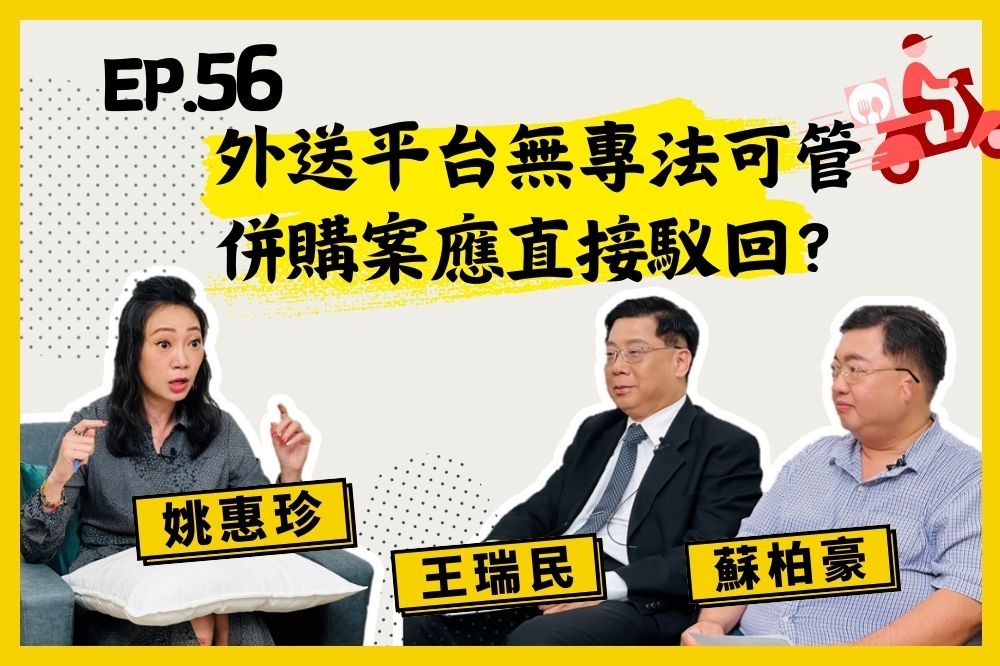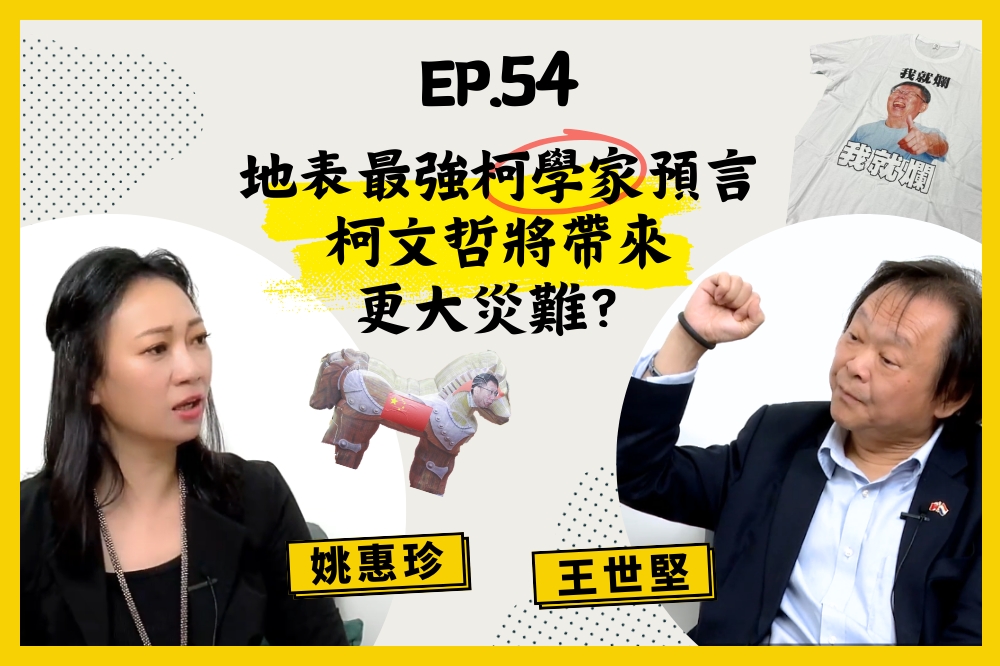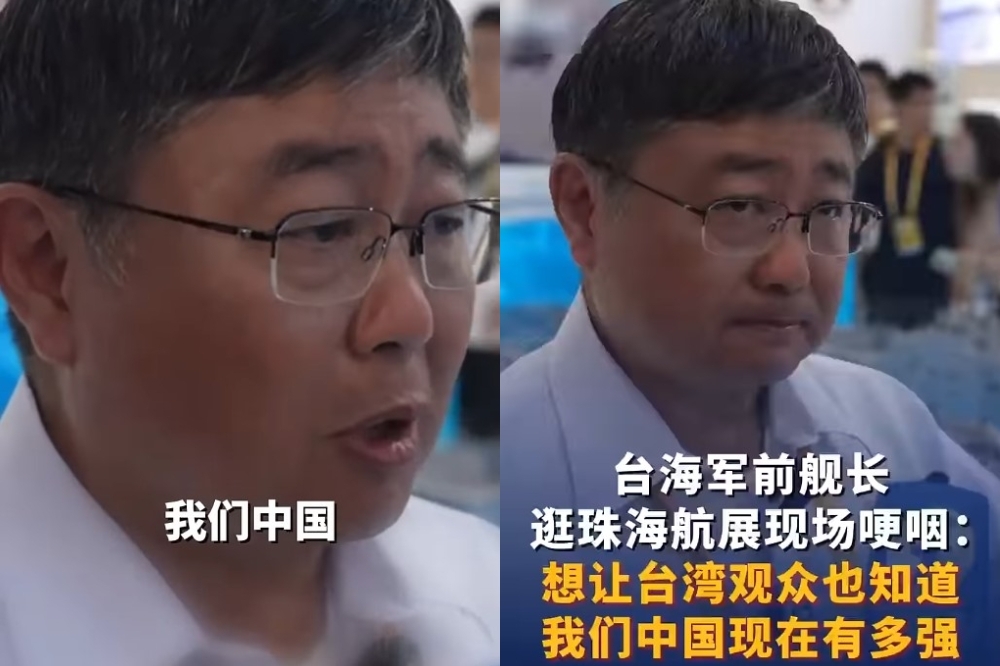At this point it’s not clear whether he intends simply to upgrade the protocol status of Taiwan in American diplomacy (as both Reagan and Clinton did to some extent) or whether he really wants to challenge the long-standing “one China policy”, which would be a strategic change. Whichever it is, he seems to be delivering a couple of messages. One is to the American conservative movement, which has long chafed at the US government’s failure to treat Taiwan the way they think it should be treated, given that it’s a stable democracy and a long-standing strategic partner. The other message is to Beijing, which is that Trump is a tough negotiator who is willing to use various chess pieces to demand better treatment from China on issues where he thinks the US has been mistreated.
It may turn out to mean little more than a protocol upgrade. But it could also lead to more substantive things, like stronger US support for Taiwan’s participation in intergovernmental organizations, advancing trade and investment negotiations between the two sides, or enhanced military sales and cooperation. I highly doubt it would lead to the US encouraging Taiwan to declare independence (that would be so dangerous). However, I worry that it is not in Taiwan’s interest to become a bargaining chip in the Washington-Beijing relationship. If Trump intends to use Taiwan in that way, Taiwan should avoid being trapped in such a situation.
Gaining control (in some form - looser or tighter, I don’t know which) over Taiwan is a core security interest of China - not only for emotional, historical, or political reasons but for reasons of geopolitics, which are the kind of reasons that do not go away. China is determined to gain that control, and I believe they will take any actions necessary to prevent an erosion of the position they have already achieved (that is, US “acknowledgment” and “recognition” that “all Chinese on either side of the TW Strait” recognize TW as part of one China plus stronger and stronger economic ties with TW plus TW diplomatic isolation plus military superiority across the Strait). If there is backsliding sponsored by the US, I expect China to ramp up pressure on TW in every way - military, economic, diplomatic, and political.
Yes, it’s very possible. That could include conflict over TW, or North Korea, over the Senkakus, over the So China Sea. “Conflict” is a broad term. It could include rising political tensions, rising military tensions, or even armed clashes. I don’t expect a major war, however.
I don’t like to give advice to countries where I am not a citizen. I prefer to occupy the position of an analyst. As an analyst, I can say that it is not in Taiwan’s interest to be used as a bargaining chip in Trump’s or America’s deal-making. Reagan’s Six Principles constituted a promise that Taiwan would not be a bargaining chip. How one avoids being made into a bargaining chip is a question I can’t answer.
It’s very hard to tell how much he understands intellectually. I consider his behavior dangerous, but I don’t know whether he’s doing (what I think are) wrong things because he doesn’t understand, or because he understands but seeks different goals from those that previous presidents have sought, or whether he understands and seeks similar goals but has a different idea of the proper tactics to achieve those goals.
We have no information about this on which to base a judgment. I can only guess. I guess (1) given the complexity of the US China relationship it is necessary to have dialogues (2) given Trump’s desire to overthrow all precedents, he’ll set up a different framework for doing so (3) given his personalized, impulsive managing style, it may be a less institutionalized form of dialogue.
|
上報 Up Media
toggle- 最新消息 謝宜容道歉影片網友不買單 諷刺:連眼眶都沒紅 2024-11-22 15:28
- 最新消息 【勞動部霸凌案】林淑芬揭謝宜容「靠山有3人」 痛批:吃喝玩樂都在一起 2024-11-22 15:21
- 最新消息 賽恩削弱!《聯盟戰棋》釋出 14.23b 熱修更新:蒙多實驗體、伊莉絲及拼裝高手削弱 2024-11-22 15:10
- 最新消息 《永夜星河》丁禹兮寵溺虞書欣「1舉動」甜出汁 卻害王鶴棣被罵翻 2024-11-22 14:58
- 最新消息 【勞動部霸凌案】謝宜容列為被告 新北地檢今早到勞動部查扣資料 2024-11-22 14:46
- 最新消息 寮國假酒摻甲醇奪5命 外交官:源頭難防「滴酒不沾」才能規避風險 2024-11-22 14:45
- 最新消息 恐怖!三重工地「2吊塔」高空掉落釀1死3傷 侯友宜:已即刻停工 2024-11-22 14:37
- 最新消息 【世棒四強賽】贏了!「中華隊 vs 美國」吳俊偉成功關門 中華隊8:2搶下首勝 2024-11-22 14:33
- 最新消息 高市府毒防局再傳捷報 榮獲衛福部健康城市「韌性與創新獎」 2024-11-22 14:26
- 最新消息 賴清德總統出訪南太三友邦 國安局長蔡明彥先行維安視導 2024-11-22 14:15

黎安友:至目前為止,川普所採取的仍是在「鴿派」(Mr. Nice Guy)與「鷹派」(Mr. Tough Guy)之間擺盪的態度,且尚無法看出引導他的戰略思維。
問:您認為川普打破37年來的慣例,接了台灣總統蔡英文的恭賀電話,想傳達的訊息是甚麼?
答:此時此刻還無法確定,川普究竟只是想要提高美國外交政策對台官方往來的規格(雷根及柯林頓時期均曾做此調整),抑或真有挑戰美國長期以來所採行「一中政策」之意圖,倘係後者,則將是戰略性的改變。
然而,不論川普真正的意圖為何,他似乎已傳達諸多訊息:其中之一是針對美國保守派勢力所傳達的訊息。這派力量一直以來都是造成美國政府未能用對待一個穩定民主政體,且為美國長期戰略夥伴的國家應有的方式來對待台灣的因素。另一方面則是向北京所傳遞的訊息。即顯示川普是個難纏的談判對手,他有意運用各種籌碼,要求中國在美方認為其未獲正面回應的諸多議題上,能拿出更有誠意的對待方式。
問:您覺得美台關係會出現甚麼樣的變化?
答:除了提升對台官方往來規格之象徵性意涵外,此亦可能展現在美國對台政策的具體作為,例如強化對台灣參與國際組織的支持、加速雙邊貿易暨投資談判、增加對台軍售及合作等。但我認為對台灣而言,成為美中關係角力之籌碼恐非有利發展。
問:川普和蔡英文通話之後,中共便派出了空軍機群,在15天內兩度繞行台灣,我們如何研判中共的動態?
答:取得對台控制,是中國的核心安全利益所在,除了情感上、歷史上及政治因素考量外,亦有地緣政治的重要性。中國取得對台掌控權的決心甚堅,而我也相信中國將採取任何必要手段,預防危及其現已達到的成果(亦即美國「認知」並「承認」兩岸中國人均認同台灣是中國的一部分、與台灣日益強化的經濟連結、使台灣面臨外交孤立之處境,以及取得台海軍事優勢)的一切可能性。倘若因美國介入而影響前述現狀的維持,預料中國將從軍事、經濟、外交及政治上全面加強對台灣施壓。
問:未來是否因為川普的不確定性,於東亞地區製造出可能的區域衝突?
答:是的,這是極可能出現的情況,而區域衝突的引爆點可能在台海、北韓、釣魚台列嶼或南海。這裡所謂「衝突」是一個廣義的概念,包括政治、軍事緊張情勢升高,抑或武裝衝突,但我預期不致於發生大規模戰爭。
問:在川普主政下,台灣是更安全?更危險?
答:現在就要推測川普的未來政策方向,仍言之過早,但至目前為止,他所採取的仍是在「鴿派」(Mr. Nice Guy)與「鷹派」(Mr. Tough Guy)之間擺盪的態度,且尚無法看出引導他的戰略思維。川普現已任命的行政團隊成員及顧問人選,似乎對各項議題所持意見仍有紛歧,而他在美國眾議院亦樹敵頗多(包括共和黨籍議員),因此,整體態勢不僅對台灣而言,對所有人來說都頗具挑戰性且不穩定。
問:在這樣的情勢下,您對目前台灣執政的民進黨有何建議?包括面對川普和面對中共?
答:我傾向不對我自己所屬的國家提供建言,但作為一個分析者,我認為在川普或美國的算計中,把台灣被當作美中關係角力的籌碼,與台灣的利益不符。雷根政府提出的對台六項保證,確保了台灣不致成為美中關係談判的籌碼,但對於如何避免成為他國角力間的犧牲品,我恐怕無法回答這個問題。
問:就川普近來的發言看來,您認為這位即將上任的美國總統對中國和台灣以及兩岸關係具備足夠的認識嗎?
答:從智識層面而言,我很難判斷川普對當前外交情勢的掌握程度。基本上我認為他的行為是危險的,但無從判斷他的這些作為,究竟是由於不瞭解情勢,抑或純為追求不同於美國歷任其他總統的目標;又或者是,他所認知的情勢及所追求的目標與其前手們並無二致,只是對於達成目的之手段有不同的看法。
問:小布希政府時期有美中「政治對話」(Political dialogue)及「經濟對話」(Economic dialogue)。歐巴馬政府則將這兩條軌道合而為一,稱為 「戰略經濟對話」(Strategic and economic dialogue),未來川普會否延續此一行之有年的對話機制,又或者進行調整?
答:目前並沒有可供參考的資訊,但我的猜測有三:(1) 以美中關係的複雜性觀之,雙方對話確有其必要性;(2)以川普亟欲擺脫既有窠臼之態勢觀察,他可能建立不同的架構;(3)就川普極具個人色彩且較躁進的領導風格而言,未來可能採行較不具制度化的對話形式。
問:川普和台灣之間,可否有發展出政府高層進一步固定對話的管道?
答:或許可能,但我並不知道川普陣營是否曾就此細節進行討論。
以下為專訪原文:
【上報徵稿】
上報歡迎各界投書,來稿請寄editor@upmedia.mg,並請附上真實姓名、聯絡方式與職業身份簡介。
一起加入Line好友(ID:@upmedia),或點網https://line.me/ti/p/%40zsq4746x。
熱門影音
熱門新聞
- 【懶人包】勞動部公務員疑遭職場霸凌輕生 事件始末「時間軸、手段、調查結果」一次看懂
- 起底謝宜容!傳身家背景雄厚「善做公關」 先生和綠營高層有交情
- 一元特典!YOASOBI「超現實」小巨蛋演唱會釋出「零星票券」,11/24 採實名制一般販售
- 【世界棒球12強賽】滿足「2條件」台灣確定晉級4強 今晚是關鍵
- 先搶先贏!Ado 五月林口體育館演唱會採實名制入場,11/19 輸入「指定代碼」可優先預購
- 【內幕】T112步槍裝彈器採購案疑專利侵權 以色列向軍備局寄存證信函
- 楊冪人氣暴跌與《慶餘年》張若昀演新片淪鑲邊女主 造型曝光全網夢回《三生三世十里桃花》
- 陳妍希與陳曉鬧婚變疑復合 她素顏與閨蜜聚餐模樣超清純全網夢回《那些年》










